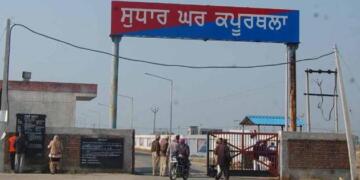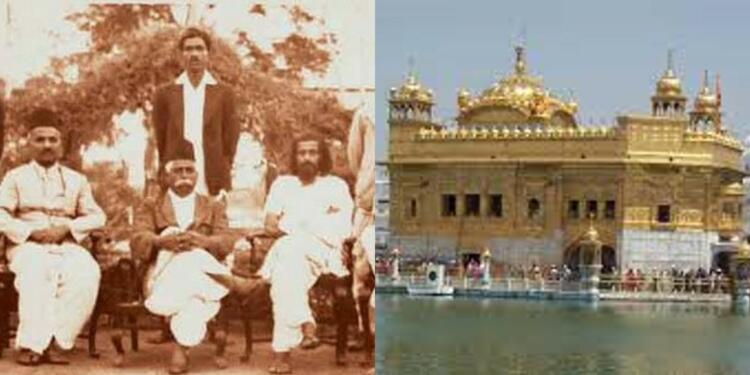In April, the Shiromani Gurdwara Parbandhak Committee (SGPC), the apex body of the Sikh religion, passed a resolution condemning the Rashtriya Swyamseva Sangh (RSS) for suppressing the freedom of other religions. Acting Akal Takht Jathedar Giani Harpreet Singh too has spoken against the RSS several times and has also demanded a ban on the volunteer organisation.
Interestingly, the SGPC had even drawn a parallel with the Mughals. It accused RSS of threatening the minorities by meddling in their affairs. The SGPC resolution stated, “Such attempts were made by the Mughals in the 17th century which were resisted by Sikh gurus while ninth Sikh master Guru Tegh Bahadur made a supreme sacrifice for other communities.” However, a small revisit of RSS-Sikh history would disclose a completely different story.
When RSS saved the Golden Temple from unruly mobs:
The relationship between the RSS and the Sikhs dates back to 1947. It was the partition era when blood-thirsty mobs instigated by Muslim League leader Muhammad Ali Jinnah were committing some of the most ghastly crimes known to humanity. At this juncture, the RSS defended the people of Punjab, including Sikhs.
Writing for The Print, Arun Anand, a Delhi-based journalist who has been constantly tracking the RSS and has written the book Know About RSS, said, “The RSS posted 75 swayamsevaks (the complete list with names and addresses is available in the appendix of ‘Partition Days: The Fiery Saga of RSS’) to safeguard the Darbar Sahib at all times from any further onslaught. The RSS’ operations to protect the Darbar Sahib were primarily led by Dr Baldev Prakash, the then chief of RSS’ evening shakhas in Amritsar, along with the town pracharak (full time worker) Dr Indrapal, and Goverdhan Chopra, incharge of morning shakhas in Amritsar.”
As per the sources quoted by Arun Anand, two attacks were planned on the Golden Temple by the Muslim League-led mobs- one on March 6, 1947, and the other on March 9, 1947.
RSS role in saving Sikh lives during the Partition:
Arun Anand further states that “Prof. A.N. Bali gives a detailed description of how RSS saved a large number of Sikhs and Hindus” in the run-up to the Partition in Lahore. Interestingly, the preface of Prof. Bali’s book ‘Now it can be told’ was written by Master Tara Singh, the man who played a big role in the Akali movement and the emergence of SGPC.
Prof. Bali stated, “The police was mostly League minded … who else came to the rescue of the people at this stage but a band of young selfless Hindus, known as RSS. They organized in every mohalla (area) of every town of the province the evacuation of the Hindu and Sikh women and children from dangerous pockets to comparatively safe centres. They organized for their feeding, medical aid, clothing and care … even fire brigades were formed in various towns.”
RSS role in helping Sikhs during the 1984 riots:
Even in post-Independence India, the RSS did play a role in advancing Hindu-Sikh unity. After the anti-Sikh riots in 1984, noted columnist and writer Khushwant Singh went as far as saying, “RSS has played an honourable role in maintaining Hindu-Sikh unity before and after the murder of Indira Gandhi in Delhi and in other places. It was the Congress (I) leaders who instigated mobs in 1984 and got more than 3,000 people killed. I must give due credit to RSS and the BJP for showing courage and protecting helpless Sikhs during those difficult days. No less a person than Atal Bihari Vajpayee himself intervened at a couple of places to help poor taxi drivers.”
Later, in 2003, the then National Commission for Minorities Chairman Tarlochan Singh said, “The RSS and Sikhs have always fought shoulder to shoulder. Sikhs can never forget how RSS activists protected them during the partition and the 1984 anti-Sikh riots.”
It is quite ironic for RSS to be labelled an anti-minority organisation, and that too by a Sikh organisation, when the RSS has an entire history of promoting Hindu-Sikh unity and protecting both the communities in the state of Punjab.
























